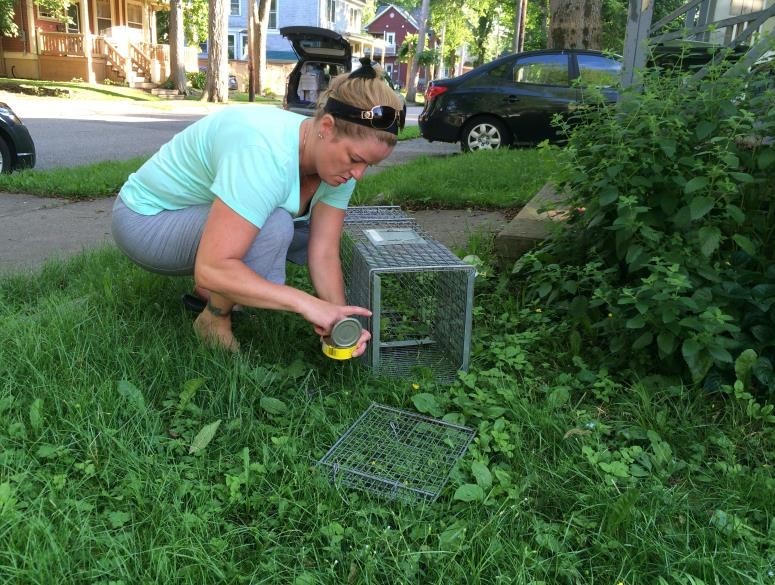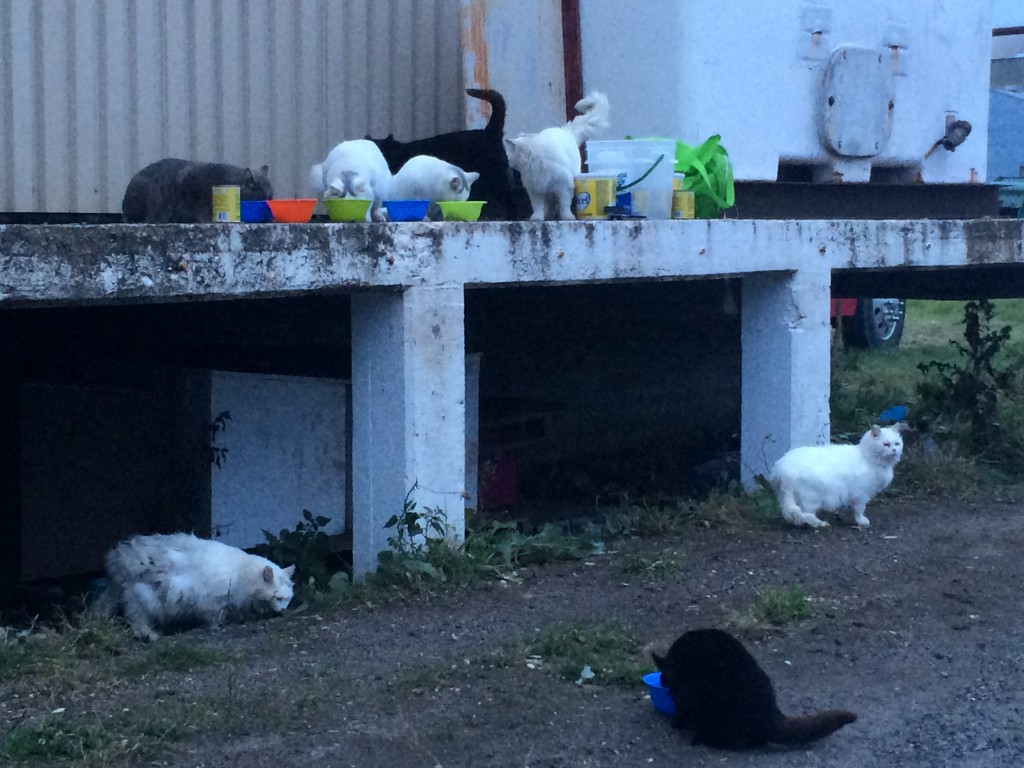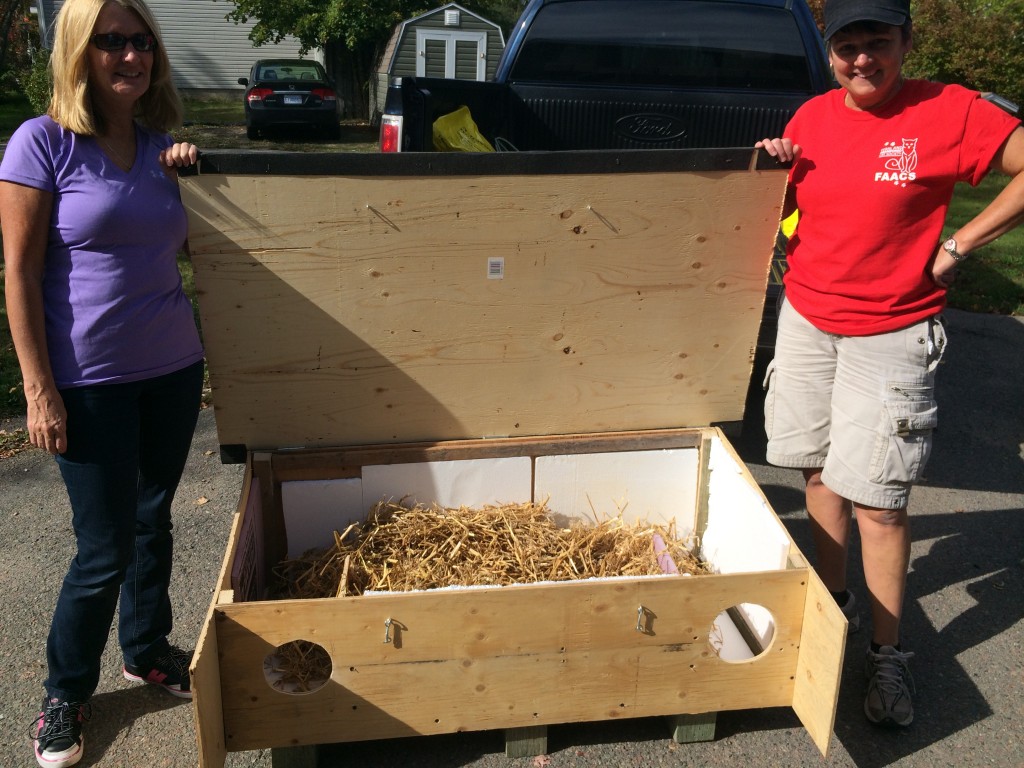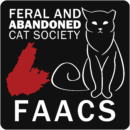Improving quality
of life for
Cape Breton cats
Programs
Trap-Neuter-Return (TNR)
We rely on the community to notify FAACS of locations where feral, stray and abandoned cats live. Our volunteers work with residents to identify caretakers or potential caretakers for homeless cats to ensure the cats have a steady source of food, water, and shelter.
We utilize a coordinated approach to identify, document and monitor feral cat colonies, maintaining location information and veterinary care data.
Our volunteers work with colony caretakers to organize trapping days to humanely capture and transport cats to be spayed or neutered and later returned. And when homeless cats are extremely ill or injured, humane euthanization is provided.
FAACS volunteers fundraise and gather donations to help pay for these veterinary services.
FAACS also supports colony caretakers, when needed, with cat food donations and cat shelters to help ensure homeless cats have the necessities for survival.
Donors may purchase cat food online through our Food for Ferals Amazon account. To donate food now, click HERE.
We do not provide foster or adoption services. However, FAACS encourages fostering and adopting the friendly, tamable cats and kittens we encounter, in cooperation with the local SPCA, rescue groups and private foster volunteers.
Low-Income Spay-Neuter
Public Education
FAACS volunteers provide education through our website, social media, and outreach opportunities on TNR and responsible pet ownership to help prevent cat overpopulation and pet abandonment.
We also share ideas, experience, volunteers, and trapping resources with other animal welfare groups, working together to manage the feral and abandoned cat population in Cape Breton.



